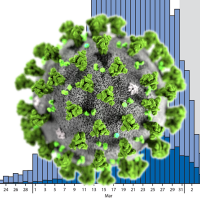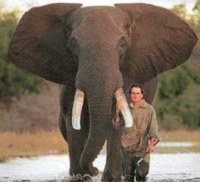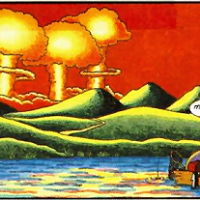 A bit more than three years ago (on February 3, 2021, to be specific), I posted a Wednesday Wow about COVID-19. Seeing the reported numbers in the news back then inspired me to obtain my own dataset and do some analysis. The results then were jaw-dropping, hence the Wow!
A bit more than three years ago (on February 3, 2021, to be specific), I posted a Wednesday Wow about COVID-19. Seeing the reported numbers in the news back then inspired me to obtain my own dataset and do some analysis. The results then were jaw-dropping, hence the Wow!
For quite a few months now I’ve been meaning to do an update to see what’s happened since then. Yesterday I pulled a new dataset and re-did the analysis.
The results are still jaw-dropping. And horrific and sorrowful.
 The old saying “Spare the rod, spoil the child” has fallen into, shall we say, severe disfavor these days, even as just a metaphor for strict childrearing. And forget about actually spanking your kid — that’s child abuse by modern standards.
The old saying “Spare the rod, spoil the child” has fallen into, shall we say, severe disfavor these days, even as just a metaphor for strict childrearing. And forget about actually spanking your kid — that’s child abuse by modern standards.
 I was going through old files I’ve kept around for too long and found a collection of images a friend sent me years ago. We met in college and have been friends since. She ended up working in advertising, plus her husband had a graphic design business, so she was pretty attuned to and interested in the world of visual arts and advertising.
I was going through old files I’ve kept around for too long and found a collection of images a friend sent me years ago. We met in college and have been friends since. She ended up working in advertising, plus her husband had a graphic design business, so she was pretty attuned to and interested in the world of visual arts and advertising.
 The previous two posts (
The previous two posts (













